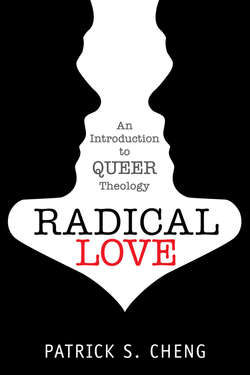Читать книгу Radical Love - Patrick S. Cheng - Страница 11
На сайте Литреса книга снята с продажи.
Queer Terminology
ОглавлениеThis section will discuss at least three meanings of the word “queer”: first, as an umbrella term; second, as transgressive action; and third, as erasing boundaries. Since the early 1990s, LGBT scholars (that is, scholars who have self-identified as lesbian, gay, bisexual, transgender, intersex, questioning, or allies) have reclaimed the word “queer” from its previously negative connotations.3
Historically, the term “queer” has been used in a negative way. For example, the Oxford English Dictionary Online defines “queer” as “[s]trange, odd, peculiar, eccentric” as well as “relating to homosexuals or homosexuality.” The OED Online traces the word back as far as a 1513 translation of Virgil’s Aeneid, and it speculates that the word is derived from the German word “quer,” which means “transverse, oblique, crosswise, at right angles, obstructive.”
The OED Online notes, however, that although “queer” was originally used in a derogatory sense, since the late 1980s it has been used as a “neutral or positive term,” citing a 1987 newspaper article that reported on a humorous sign at a march that said “We’re here because we’re queer.”4 As such, we now turn to a discussion of three “neutral or positive” meanings of the word “queer.”
